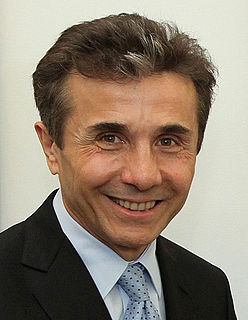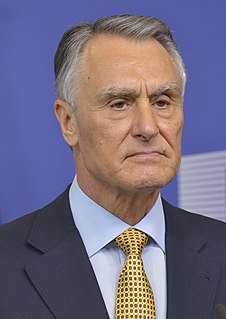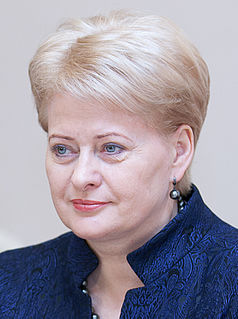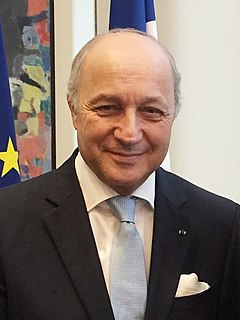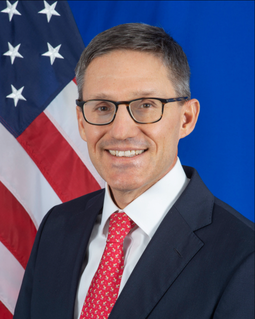A Quote by Bidzina Ivanishvili
Our policy is European and Euro-Atlantic integration. There is no substitute for NATO.
Quote Topics
Related Quotes
For a small open economy that trades mostly with the euro zone it makes absolute sense to be part of the currency union. Our currency has already pegged to the euro since 2002. We don't have an independent monetary policy. We are regulated by the European Central Bank in Frankfurt, but we are not able to reap all the profits. Our businesses want to save the transaction costs.
The importance of strengthening Euro-Atlantic security: the growing dangers pile pressure on our rules-based international system, so we need to do more to strengthen NATO, the bedrock of our defense - not just upping spending, but making the alliance more agile and more capable of tackling dangers from all directions.
Thanks to the euro, our pockets will soon hold solid evidence of a European identity. We need to build on this, and make the euro more than a currency and Europe more than a territory... In the next six months, we will talk a lot about political union, and rightly so. Political union is inseparable from economic union. Stronger growth and Euorpean integration are related issues. In both areas we will take concrete steps forward.
The development of European integration can be divided into two phases. The first era ended with the Maastricht Treaty. It was a liberalization phase, with the main goal of European integration at the time being the removal of various barriers and borders in Europe. The second phase is a homogenization or standardization phase, one that involves regulation from the top and growing control over our lives. This no longer has anything to do with freedom and democracy.
Americans have long felt that NATO isn't doing its job and that the Europeans aren't contributing enough. Trump has accelerated the decline in Atlantic solidarity by offering open contempt for NATO allies as well. The future of NATO now very much depends on Europeans. Can you begin to identify security threats, prepare yourselves and arm yourselves without the US?
Establishing proper economic governance that allows the Eurozone to undertake the integration it needs whilst protecting the interests of the single market for all 28, the rights of member states who are not in the Euro - including of course the UK - is really important for the future of the European Union.
The citizens of the United States cherish sentiments the most friendly in favor of liberty and happiness...beyond the Atlantic. In the wars of the European powers in matters relating to themselves we have never taken any part, nor does it comport with our policy to do so. It is only when our rights are invaded or seriously menaced that we resent injuries.
I spoke with Gerhard Schröder about a lot of things, including foreign policy. Schröder knows how important European policy is to me personally. I have worked together with Angela Merkel on European policy for many years, so I was surprised when Volker Kauder who has little experience in European policy, claimed that I had not represented German interests in Europe. That's an example of how the conservatives conduct an election campaign.
I'm not trying to be diplomatic. I'm trying to be more nuanced and realistic. I think there has to be a serious examination of the shortcomings of the Euro structure. Euro central institutions, whether it be fiscal policy, monetary policy, financial regulation, are simply not as robust as they are in a currency that has a national government behind it.
